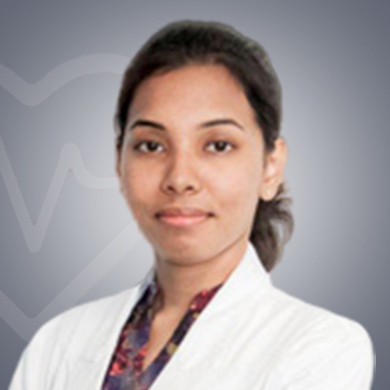
10 Years of experience
Speaks: English
Dr Srilathaa Gunasekaran is a renowned ophthalmologist who has vast experience in various surgeries and can treat a number of conditions listed below:
Diabetic Retinopathy, Dry eye Syndrome, and Conjunctivitis are common eye conditions treated by ophthalmologists. The treatment for dry eye is based on the suggestion of an ophthalmologist Treatment options may include proper dieting, medications, and surgery. Some treatments for drye eyes focus on reversing a condition that's causing your dry eyes.
Eye conditions can produce the below-listed conditions However, symptoms might vary from person to person. Every condition has its symptoms.:
Routine eye exams are the best way to avoid any vision problems. In case you did not have an eye exam for more than a year, you should schedule a visit with your eye doctor. Being aware of some warning signs can help you take the required steps for the health of your eyesight, especially if the vision symptoms appear suddenly. In most cases, detached retina and onset of glaucoma, quick intervention is required to minimize the permanent vision loss.
Dr Srilathaa Gunasekaran is available for consultation between 10 am and 5 pm. The average working hours of the doctor are 47 hours a week.
Some of the popular procedures performed by Dr Srilathaa Gunasekaran are listed below:
LASIK (laser-assisted in situ keratomileusis) is the most common procedure performed to treat myopia, hyperopia, and astigmatism. Like other types of eye surgery, LASIK reshapes the front surface of the eye to allow light entering into the eye to focus clearly on the retina without the use of glasses or contact lenses.

Share Your Experience about Dr. Srilathaa Gunasekaran

An ophthalmologist is a medical doctor who is trained in vision and eye care. Ophthalmologists are different from optometrists and opticians because of their different levels of training and the conditions they diagnose and treat. Some ophthalmologists work closely with other medical experts to provide care for chronic eye conditions. While ophthalmologists are trained to treat and diagnose all eye problems, some ophthalmologists specialize in a certain field of medical and surgical eye care. They complete 1-2 years of additional training in one of the main subspecialty areas, including Pediatrics, Oculo-Plastic Surgery, and Neurology. They also participate in scientific research on the treatment for eye diseases and vision issues.
For the evaluation of your eye condition, you have to get certain tests done which may include the following:
An eye exam involves a number of tests to check your vision and eye diseases. The eye doctor will use various instruments and focus bright lights at the eyes and ask you to look through an array of different lenses. Each test in an eye exam will evaluate a different aspect of vision and eye health..
Below are some situations when you need to see an opthalmologist:
If you notice the above-listed signs and symptoms, you are suggested to see an opthalmologist for a proper diagnosis of the condition. The opthalmologist will evaluate the test reports and will plan the treatment that is best for you.